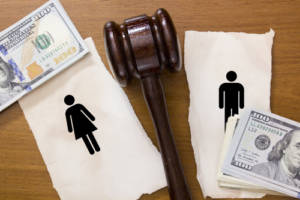Divorce And Your Credit Score
Divorce is an intensely emotional process for many people, but it can also be an intensely financial process, as well. One of the most important things that people going through a divorce should do is take steps to ensure that their credit score does not drop as a result of the process. Some people worry that their credit scores will drop merely as a result of going through a divorce. While that may not necessarily be true, divorce can still impact your credit score indirectly. This can occur in two different ways.
First, divorce can impact your credit because it has to do with assigning debt and closing down all the joint accounts you have with your spouse. Second, it can affect your credit going forward because divorce can mean a change in your financial situation, going from a two-income household to a one-income one.
Deal with Joint Accounts
One of the most significant ways divorce can harm a person’s credit is through the property division process. Property division involves more than simply dividing up all of the items the spouses own. It also allows courts to apportion the marriage’s debts, such as mortgages and joint credit cards. This can be harmful to people’s credit because assigning the debt to one person does not affect the lender’s credit reporting. If the spouse responsible for paying off the debt does not pay, then it can hurt both spouses’ credit scores.
One of the best ways to deal with this is by paying off as much debt as possible during the divorce process. For instance, if neither spouse is keeping the marital home, selling it to pay down the mortgage can make things much easier later. Even if one of the spouses is staying in the home, it can be possible to refinance the home so that the other spouse is no longer responsible for the mortgage.
Spouses should also be careful to ensure that they close all joint credit cards. Some people have been known to use them as weapons in divorce by charging up large purchases that they want the other party to be responsible for.
Budget Well
Credit protection also requires an active approach going forward in the form of proper budgeting. Divorce often results in a change in people’s financial situations. While child support and alimony can often make up some of that gap, they may not make up all of it. Make sure to take the time to sit down and assess your new cash flow and your new expenses. Know exactly what is coming in, and what is going out, and avoid overusing your credit cards.
Working with a Skilled Divorce Lawyer
It is understandable for a person going through a divorce to feel stressed out about the impact their divorce will have in all aspects of their life. This is why it is important to work with a seasoned divorce lawyer.
Thanks to each divorce lawyer from the Law Office of Daniel E. Stuart, P.A. for their insight into the importance of protecting your credit during a divorce.

